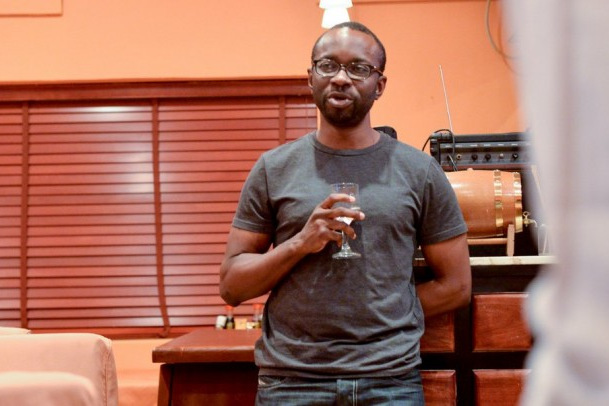Tayo Oviosu, founder and CEO of Paga was one of the speakers at the angel investor bootcamp hosted by ABAN at DEMO Africa. An angel investor himself, he was there to speak to other angels, some of whom had just taken up the funding halo, about the art and science of funding startups in Africa.
In the evening of the same day, Tayo would go across the road from Eko Hotel where DEMO was taking place to another gathering hosted by Ingressive and Potential VC. Only this time, he was going to pitch Paga to pretty much the same angels he had schooled that morning.
“Haha, I’m always raising”, he told me in the lobby of Maison Fahrenheit. He’d been getting incredulous looks from the other entrepreneurs scheduled to pitch.
The audience of angels awarded a $10,000 prize to the “best pitch” of the evening. Not quite two weeks later, Paga has announced that it has raised $13 million dollars in series B funding from Adlevo, Omidyar Network, Goodwell West Africa, Acumen Fund, and Capricorn Investment Group.
The investing funds are previous backers from a series A round, the sum of which was undisclosed. Paga also previously raised an angel round in the very beginning, sum also undisclosed. So it isn’t clear how much Paga has raised in total, or what the startup’s valuation might be.
The official release from Paga announcing the raise also notes that Jeremy Stoppelman, co-founder and CEO of Yelp, and an early member of PayPal has joined the roster of individual investors. We don’t know who most of these people are, but we do know that it’s a long and rather impressive list of people who believe in Paga. Among them, Tim Draper of Draper Fisher and Jurvetson, Arunma Oteh, Vice President and Treasurer at the World Bank and Jim O’neill, former chief economist at Goldman Sachs.
Time and time again, people have asked how Paga is doing as a business. I have often wondered myself. Back when it was perceived to be a mobile money company, while mobile money was the reigning buzzword (thanks M-Pesa!), no one questioned the opportunity. Now that mobile money is pretty much dead in Nigeria, and Paga has sought to distance itself from the mobile money characterisation, a lot of watchers have struggled to understand what Paga is and where it intends to go. To be fair, Tayo has been calling for the death of the terms “mobile money” and “mobile payments” since 2011, and Paga has since styled itself as a “payments company” that utilises offline agents as well as online and mobile channels to enable a gamut of transactions for its users.
Along with more consistent signalling, Paga’s numbers are on the up as well. It currently boasts of over one billion dollars in transaction value over 17 million transactions, 3.4 million registered users, 8,850 agents on its network, and over 3,600 businesses signed up. The six year old startup currently employs more than 210 staff.
Tayo Oviosu has become one of the most respected startup entrepreneurs in Africa, and for good reason too. And not just because of his visionary leadership of one of the most innovative financial services companies on the continent. Tayo is also well liked for his helpful disposition, and is increasingly seen as a mentor figure for the next generation of technology and internet entrepreneurs on the continent.
But while respect and adoration are nice, they by themselves are no shield from the brutality of an early market, nor shelter from the trade winds of globalisation that is bringing global payments players to his turf. To hold his own, he needs more money. A lot of it.
“Always be raising”, Tayo said to me that evening in the lounge of Maison Fahrenheit. Lucky for him, he just did.
Want to read more about Paga? Tayo Oviosu did an Ask Me Anything session on TechCabal’s companion forum in June, and the conversation certainly makes for interesting reading.
Correction: An earlier version of this article said Omidyar Network did not participate in Paga’s Series A. They did. Also, Jeremy Stoppelman’s first name was mis-written as “John”. I apologise for the errors.



















